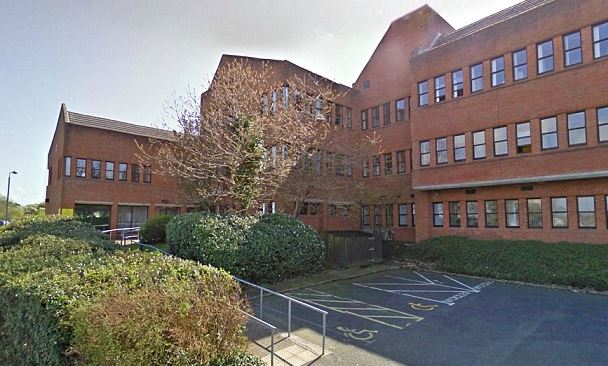Health
‘Truly abysmal’ – Welsh NHS waiting list hits new record high

THE LATEST NHS statistics paint a bleak picture of healthcare in Wales, with waiting lists reaching an unprecedented 802,268 patient pathways in November—marking the tenth consecutive month of increases. These figures have sparked widespread criticism, with opposition parties and healthcare charities lambasting the Welsh Labour Government for its handling of the crisis.

Waiting lists and emergency care in decline
The 802,268 patient pathways recorded represent more than one in four of the Welsh population. Behind this staggering number lies a harsh reality for patients. The median waiting time has now climbed to 23 weeks, a stark contrast to the 14-week average in England. For those waiting more than two years for treatment, the figure has risen again to 24,361. This is a glaring failure considering Labour’s repeated promises to eliminate two-year waits by 2023 and 2024—targets that remain unmet.
Emergency departments also continue to struggle. The percentage of patients seen within four hours has dropped to 64.8%, well below the target of 95%. In December, 10,857 patients waited more than 12 hours for care, an 11% increase from the previous month. Only 47.6% of red calls, the most serious emergency cases, received an ambulance response within eight minutes in December.
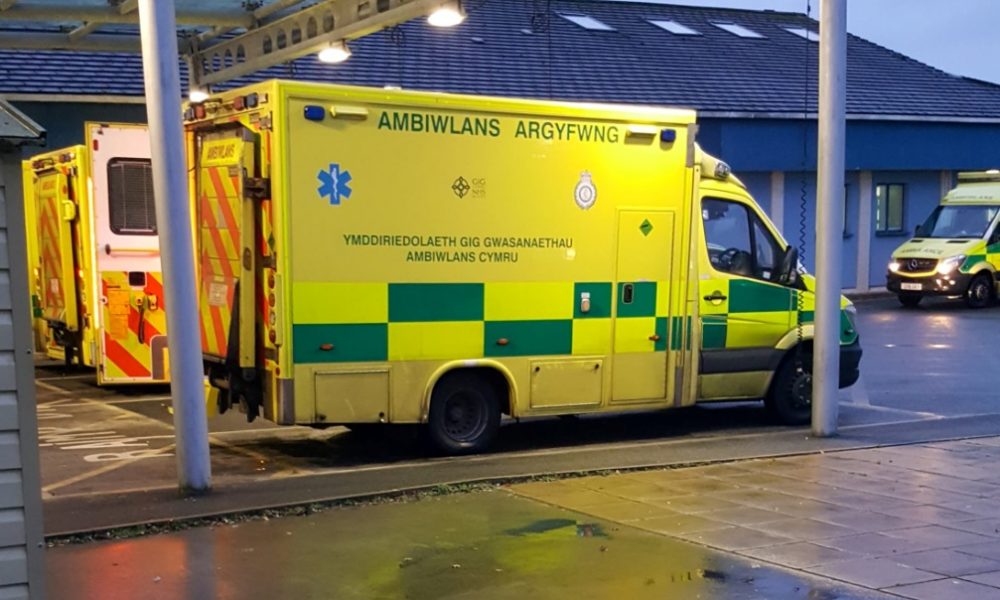
Cancer treatment performance falls short
Cancer services are in an equally dire state. The performance against the critical 62-day target for starting cancer treatment has fallen to just 60.2%—far below the 75% benchmark. While Health Secretary Jeremy Miles highlights incremental progress, including a reduction in long waits for diagnostics and therapies, critics argue this is too little, too late.
James Evans MS, Welsh Conservative Shadow Cabinet Secretary for Health and Social Care, called the statistics “truly abysmal,” adding:
“People are dying unnecessarily across Wales. Families are losing loved ones prematurely, and NHS staff morale is plummeting. The Welsh Labour Government has broken the NHS and continues to fail those who depend on it.”
Welsh Government defends record
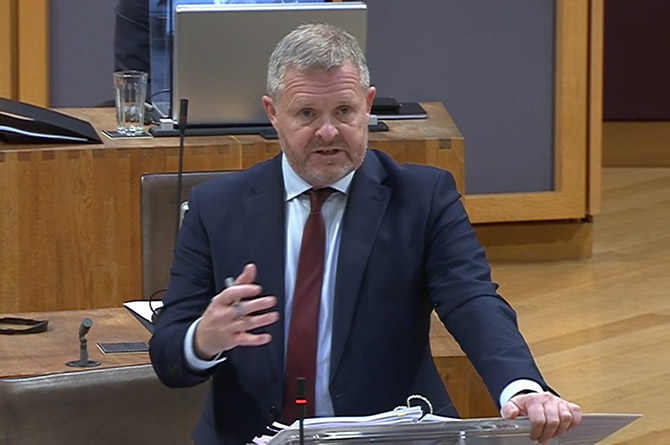
In response, Jeremy Miles pointed to recent funding increases and measures to address long waits. He highlighted a £50 million investment aimed at improving outpatient services and diagnostics, alongside a decline in delayed hospital discharges over the last four months.
“The health service in Wales continues to provide quality care to thousands of people every day, despite immense pressures from winter illnesses, including Covid-19 and flu,” said Mr Miles. “These figures do not yet reflect the impact of our latest investments, but I am confident that we will see improvements in the coming months.”
Charities demand action on cancer

Cancer charities have voiced their frustration over the slow progress in improving treatment waiting times. Kate Seymour, Head of External Affairs at Macmillan Cancer Support, described the current state of cancer care as “woefully inadequate.” She criticized the lack of strong national leadership and urged the Welsh Government to implement the recommendations of Audit Wales’s recent report on cancer services.
“The latest data shows real people are facing agonizing delays, unsure if they have cancer or when their treatment will start,” said Ms Seymour. “People in Wales with cancer deserve better.”
Judi Rhys MBE, Chief Executive of Tenovus Cancer Care, echoed these concerns, describing the findings of the Audit Wales report as “deeply disappointing.” She highlighted the lack of progress on stubbornly long waiting times for certain cancer types, including gynaecological cancers.
Political fallout
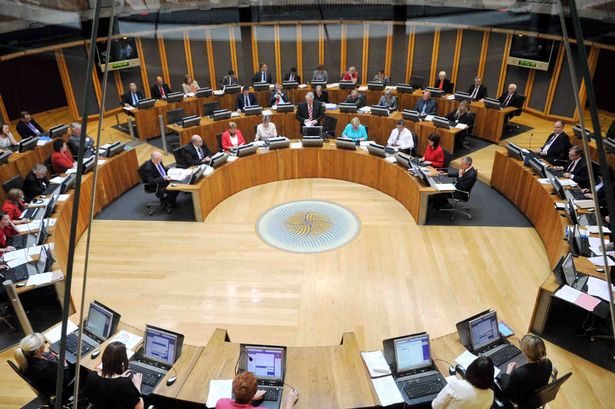
The political repercussions have been swift. Last week, the Welsh Conservatives tabled a motion in the Senedd, calling for the immediate implementation of Audit Wales’s ten recommendations to improve cancer services. The motion criticized the Welsh Labour Government for its failure to meet national performance targets since 2020 and accused it of undermining its own Cancer Improvement Plan through poor communication and unclear priorities.
Labour members, however, voted against the motion, prompting sharp criticism from James Evans MS, who called the vote “shameful.”
“The Welsh Labour Government has broken the NHS, is out of ideas, and is on its way out of office. We stand ready to fix Wales,” said Mr Evans.
The human cost

For patients and families across Wales, these statistics are more than just numbers—they represent painful realities. Behind every delay is someone anxiously waiting for a diagnosis or treatment, often with life-altering implications.
One such patient, Rhian Davies from Newport, has been waiting over two years for a hip replacement. “The pain is unbearable, and it’s getting worse,” she said. “I can’t believe I’ve been left to wait this long. It feels like they’ve forgotten about us.”
As pressure mounts on the Welsh Labour Government, health experts and opposition parties are united in their call for urgent reform. Whether the latest investments and strategies will be enough to reverse the downward spiral remains to be seen. For now, the people of Wales continue to endure a healthcare crisis that shows little sign of abating.
Health
Nurses warn of pay and burnout crisis as new report exposes pressures in Wales
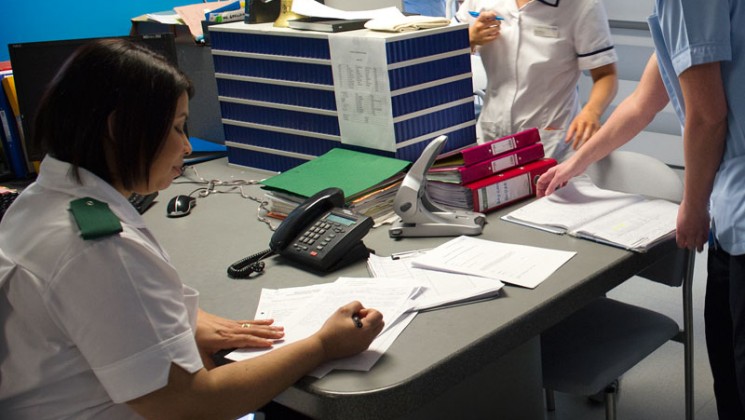
A NEW national report has laid bare the growing pressures facing nurses and midwives in Wales, with concerns over pay, burnout and lack of professional development threatening the long-term future of the workforce.
The findings, published by the Nursing and Midwifery Council in its Spotlight on Nursing and Midwifery 2025 report, show that while many nurses remain deeply committed to their roles, large numbers feel undervalued, overstretched and reluctant to recommend the profession to others.
Responding to the report, Royal College of Nursing Wales said the data should act as a wake-up call for government and health boards.
Professor Sandy Harding, Associate Director of Nursing, Policy and Professional Development at RCN Wales, said:
“We welcome the determination and commitment shown by our existing nurses in Wales, with more than half surveyed saying they are satisfied with their day-to-day work and motivated by making a difference to people’s lives. However, the findings also present a stark reflection of the poor health of nursing in Wales.
“Too many nurses are not recommending the profession to others, are struggling and are facing abuse and discrimination in the workplace.”
Pay falling behind responsibility
One of the most pressing concerns raised in the report is pay.
Nursing leaders say salaries have failed to keep pace with the growing complexity of the job, heavier caseloads and the rising cost of living, leaving many staff feeling undervalued and financially squeezed.
For some, the pressure is forcing difficult decisions about staying in the profession or reducing hours.
RCN Wales argues that without meaningful improvements to pay, recruitment and retention will continue to suffer, placing further strain on already stretched hospital wards, community services and care settings.
Training and career progression gaps
The report also highlights inconsistent access to continuing professional development, with many nurses struggling to secure protected time or funding for further training.
According to the union, this not only limits career progression but risks undermining patient care in the long term.
Harding said: “Access to protected time and funding for continuing professional development remains inconsistent, undermining both career progression and the sustainability of the workforce.
“RCN Wales believes this is unacceptable and we will continue to support nurses and fight for fair pay, meaningful investment in professional development and better working conditions across Wales.”
Commitment remains strong
Despite the challenges, the report does note strong dedication among nursing staff.
More than half of those surveyed said they were satisfied with their day-to-day work and remained motivated by the difference they make to patients’ lives.
Health leaders say that commitment is a strength the NHS in Wales cannot afford to lose.
With around 35,000 members in Wales, the Royal College of Nursing says it will continue pressing ministers to address what it describes as a “workforce crisis” before it deepens further.
The union is calling for fairer pay settlements, safer staffing levels and guaranteed investment in training to ensure nursing remains an attractive and sustainable career.
Health
Doctor struck off after sexual misconduct findings at Withybush Hospital

Tribunal history reveals medic was removed in 2012 for dishonesty before being allowed back to practise
A DOCTOR accused of sexually harassing junior colleagues while working at Withybush Hospital had previously been struck off the medical register for lying about his qualifications, the Herald can reveal.
Dr Velmurugan Kuppuswamy is currently at the centre of fitness-to-practise proceedings after allegations he made sexually inappropriate comments and subjected two female doctors to unwanted physical contact during his time as a locum consultant in Haverfordwest.
But records show this is not the first time his conduct has come before regulators.
In 2012, an independent tribunal found he had been dishonest during an application and interview for a postgraduate cardiology training post at an NHS deanery in England.
The panel heard he falsely claimed to have submitted a Doctor of Medicine thesis, said he was a member of the Royal College of Physicians and stated he had passed a practical clinical skills assessment.
He initially admitted misleading information before later retracting parts of his account. The tribunal concluded he had “maintained his dishonest accounts” and had wrongly accused a witness of giving misleading evidence.
He was erased from the register and returned to India, where he later worked in a cardiac hospital.
In 2020, he applied to be restored to the UK medical register.
The General Medical Council investigated and opposed the application, arguing his expressions of remorse had come years late and raising concerns about a lack of independent evidence regarding his work overseas, as well as the absence of relevant ethics training.
However, an independent Medical Practitioners Tribunal at the Medical Practitioners Tribunal Service accepted his assurances that he had changed. His evidence was described as “compelling, heartfelt and genuine”, and the panel decided a well-informed member of the public would not be concerned about his return to practise.
His name was restored to the register.
Shortly afterwards, he began working shifts as a locum consultant at Withybush Hospital, which is run by Hywel Dda University Health Board.
Within months, fresh allegations emerged.
A tribunal has heard claims that between August and September 2021 he hugged junior colleagues without consent, touched their backs and waists, squeezed their wrists and arms and made sexually suggestive remarks at a staff social event.
On two occasions, he is alleged to have gripped one doctor so tightly it caused pain and ignored her requests to stop. He is also accused of staring at female colleagues, following groups of women around the venue, making comments about their bodies and placing a hand high on one doctor’s thigh.
Further allegations relate to behaviour at work, including sitting extremely close to a colleague, draping an arm behind her on a sofa and grabbing her arm while whispering comments.
According to the charges, his conduct created “an intimidating, hostile, degrading, humiliating or offensive environment” and amounted to a sexually motivated abuse of his senior position.
Dr Kuppuswamy denies wrongdoing.
Following the investigation, the case was referred to a tribunal by the General Medical Council. The decision on his fitness to practise was made independently by a Medical Practitioners Tribunal at the Medical Practitioners Tribunal Service.
The tribunal determined his behaviour amounted to serious professional misconduct and ordered that he be erased from the medical register.
Asked whether the doctor remains employed, the health board said it does not comment on individual staffing matters.
Medical director Mark Henwood said: “We have robust policies and procedures in place to ensure the safety of both staff and patients in our care and we take seriously our responsibility for their wellbeing. We are committed to providing a safe, supportive environment where patients and staff can be confident that best practice is being followed at all times.”
Health
‘Parking fine or miss my appointment’ say patients pressure mounts at hospitals

From sleeping on chairs to parking fines, patients say everyday barriers are pushing the NHS to breaking point
PATIENTS across West Wales are describing a health service under such strain that some say they now expect to be penalised simply for trying to access care.
At Glangwili Hospital, stories of patients sleeping on chairs for days due to a lack of beds have been accompanied by growing frustration over issues that begin long before anyone reaches a ward — including parking, access, and the sheer difficulty of getting through the hospital doors.
One disabled patient said they had resigned themselves to receiving a £25 parking fine in order to attend hospital appointments.
“I now accept I will be fined,” they said. “Parking is impossible, but it’s that or miss my appointment. I am too disabled to park miles away and the disabled spaces are always full.”
Others have described spending days in A&E or side rooms, unable to lie down, while waiting for a bed to become available. One patient admitted on New Year’s Day with pneumonia said they slept in a chair for four nights without a pillow or blanket before being moved, only to later discover they also had flu and should have been isolated sooner.
Across social media and in correspondence with the Herald, patients and families repeatedly stress that frontline NHS staff are not to blame — instead pointing to a system that they say is buckling under years of structural strain.
Glangwili, the largest hospital managed by Hywel Dda University Health Board, serves Carmarthenshire and is home to the county’s only accident and emergency department following the closure of A&E at Prince Philip Hospital. That closure, along with reductions in services elsewhere, is frequently cited by patients as a turning point.
Several people said the loss of local A&E and cottage hospitals has forced more patients into already stretched units, increasing ambulance reliance and long-distance travel — particularly difficult in a largely rural region.
Further west, uncertainty over services at Withybush Hospital continues to fuel anxiety, especially given the scale of reinforced autoclaved aerated concrete (RAAC) identified across the site.
Hywel Dda has acknowledged that almost 90% of Withybush is affected by RAAC, while Glangwili itself is the oldest acute hospital in Wales. The health board says more than £50 million has been spent on the two hospitals in recent years, largely to address critical safety and infrastructure risks rather than expand capacity.
Patients, however, question where that money is felt on the ground.
Some have criticised NHS procurement and management structures, while others point to social care as the missing piece. Repeated comments highlight the lack of care packages and closed care homes, which many believe are leaving medically fit patients unable to be discharged — effectively blocking beds and creating bottlenecks throughout the system.
“There’s nowhere for people to go,” one reader said. “Until social care is sorted, nothing will change.”
Concerns have also been raised about staff morale, with some alleging bullying cultures and burnout contributing to recruitment and retention problems. Again, blame is consistently directed upward rather than at nurses, doctors or porters.
Behind it all looms the long-promised new ‘super hospital’ for Carmarthenshire — first discussed in 2006 and formally launched in 2018. Eight years on, construction has yet to begin, and public confidence in the project is fading.
While Hywel Dda and the Welsh Government insist improvements are under way — including additional funding to expand capacity at Glangwili and improvements to patient experience — many patients say their reality feels far removed from official assurances.
For those attending appointments, sleeping in chairs, or weighing up a parking fine against missing care, the crisis is no longer abstract.
“It’s not politics,” one patient said. “It’s whether you get treated — and how.”
-

 Health6 days ago
Health6 days agoConsultation reveals lack of public trust in health board
-

 Community7 days ago
Community7 days agoPembrokeshire students speak at national Holocaust Memorial Day event
-

 News1 day ago
News1 day agoPrincess of Wales visits historic Pembrokeshire woollen mill
-

 Crime5 days ago
Crime5 days agoPembroke man accused of child sex offences sent to Swansea Crown Court
-

 Education7 days ago
Education7 days ago‘Vulnerable teen’ questioned by police at Milford Haven School
-

 Education7 days ago
Education7 days agoAttendance concerns at Milford School reflect wider issue raised at the Senedd
-

 Health3 days ago
Health3 days agoDoctor struck off after sexual misconduct findings at Withybush Hospital
-

 Community6 days ago
Community6 days agoCampaign to ‘save’ River Cleddau hits over 2,200 signatures








